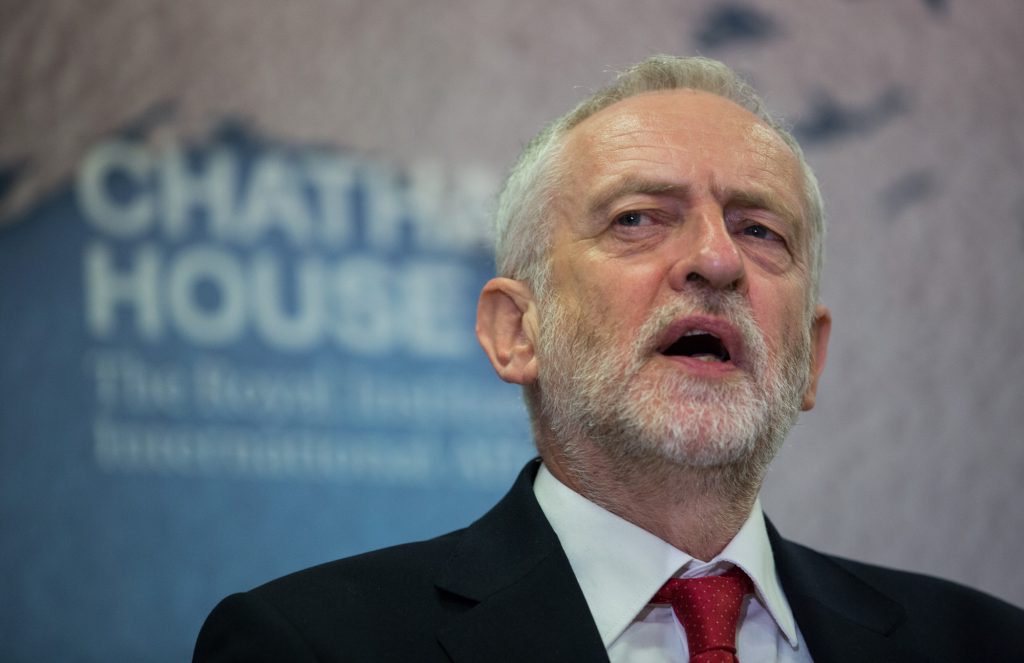Whilst the shockwaves of last week’s General Election continue to rumble on, many reformers are turning their attention to what all this upheaval and uncertainty means for the future of drug policy in the UK.
It seems very safe to assume that a Conservative government, particularly one led by Theresa May, and certainly one propped up by the Democratic Unionist Party, is very unlikely to make any meaningful change to the decades-old policy of outright prohibition.
But what of Jeremy Corbyn’s Labour Party? It’s at least conceivable that – after their shock gains on June 8th – they could find themselves forming a government in the near future. During the election and before, there seemed to be a considerable amount of optimism amongst Labour-voting activists that Corbyn could be convinced of the need for significant change, and particularly that his party might bring about the end of cannabis prohibition.
The party’s manifesto contained no mention of drug policy reform, but optimism had flourished around a statement made by Corbyn during a Labour leadership debate in Glasgow in August 2016. During that debate, he made his support for medical cannabis extremely clear, telling attendees, “I would decriminalise medicinal uses of cannabis.”
“I would also,” he continued, “want to look at supporting people who want to get out of the drugs trade in other parts of the world because there is the horrors of the drugs war that’s going on in Central America, and very large numbers of people who have died as a result of it.”
This comment tallies with previous statements that Corbyn made at a Support, Don’t Punish event in Westminster before he shot to prominence as leader of the Labour Party.
Back then, according to idpc.net, he spoke passionately of the need for an “urgent evaluation of our drug control strategies,” highlighting “the severe human rights violations caused by the war on drugs in Latin America, with thousands of deaths and disappearances, lack of access to justice, disproportionate use of violence by the police, no access to legal advice, and dire prison conditions, to name a few.”
However, at last year’s leadership debate, Mr Corbyn also insisted that he would not support the legalisation of recreational drugs, so the optimism engendered by some of his statements should definitely be tempered with caution. It appears at first glance that whilst he may understand the issues surrounding drug policy reform, he is either not yet a full proponent of it, or is shying away from an outright endorsement of legalisation and regulation now that he is in a position of power – something very familiar to anyone who followed ex-Prime Minister David Cameron’s regression from reformer to defender of the status quo.
The fact that he seems to understand the damage done by a global war on drugs, however, is cause for optimism, as is the fact that one of his closest allies in the Labour Party also appears to be onside.
Diane Abbott, Shadow Home Secretary, has supported the decriminalisation of cannabis since at least 2006, and as recently as 2014 made a telling contribution to the Commons drug policy debate initiated by Caroline Lucas MP’s public petition calling for a Royal Commission to assess UK drug policy.
During that debate, Abbott suggested that “politicians might just be behind public opinion on this question,” before going on to put the issue of UK policy into an international context. “Most of the leaders of some of the countries that have been at the heart of the international war on drugs would say now that it is not working,” she explained. “More people are taking drugs than before. The harms caused by drugs in some countries—in South America, the Caribbean, Afghanistan—have got worse. So there is an international context, in which people are recognising that an essentially punitive and criminalising approach to drugs is not working.”
There are certainly signs from within Corbyn’s Shadow Cabinet then that reform could be on the agenda, and it’s worth pointing out that the party’s recent success among students and the young – who generally speaking are the most pro-drug reform demographic – should increase the pressure on any potential future Labour government to push for regulation. And yet their 2017 manifesto contained no hint of change. It stands to reason then that reform is not high on their agenda; indeed it’s difficult to find many MPs from within the Labour Party who openly support the idea that UK drug policy needs changing at all.
There are one or two notable exceptions of course, the most prominent being Paul Flynn. Flynn is the MP for Newport West, and has been campaigning for drug policy reform for decades.
The problem is that his has often been a lonely voice of reason, not necessarily amongst voices of opposition – although Gordon Brown’s decision to re-classify cannabis as a Class B drug in 2008 was indicative of a party who at that point were openly against reform – but more often than not amongst a sea of deafening silence from his peers. This seems to be the case today – despite hints that there are those within the upper echelons of the party who support reform, their silence on the issue reveals a reluctance to engage in a public debate or to move the issue forward.
What seems to have happened in recent months and years – and certainly since Corbyn became leader of the opposition – is that this silence, which before had always been assumed to represent satisfaction with the status quo, is now being seen by many activists as reason to believe that Corbyn represents the best hope for change.
This view, as we have seen, has a solid basis in some of the things that Corbyn himself has said. However, there is a fear that the relative radio silence on this issue is simply allowing left-leaning supporters of reform to project their own wishes onto the Labour leadership, when in actual fact there is little to suggest that change is on the cards.
This could well be dangerous. A presumption that Corbyn wants reform could lead to complacency when it comes to campaigning for this change, especially since it is widely expected that he may be about to reshuffle his Shadow Cabinet, potentially ditching reformers like Diane Abbott in favour of more ‘Blairite’ MPs, whose history suggests a reluctance to engage on this issue.
The fact remains, however, that Labour do offer the best hope for meaningful drug policy reform when compared to a Conservative government led by Theresa May and supported by the DUP.
Whether that hope can eventually manifest itself as successful reform remains to be seen, but it should certainly not be considered a given. Far greater pressure will likely need to be applied if Corbyn and his allies are to be convinced that reform is a vote-winner. Especially since, let’s not forget, he is not actually in power just yet.
Deej Sullivan is a journalist and campaigner. He is a regular columnist for Volteface, writes on drug policy for politics.co.uk, London Real and many others, and is the Policy & Communications officer at LEAP UK. Tweets @sullivandeej


